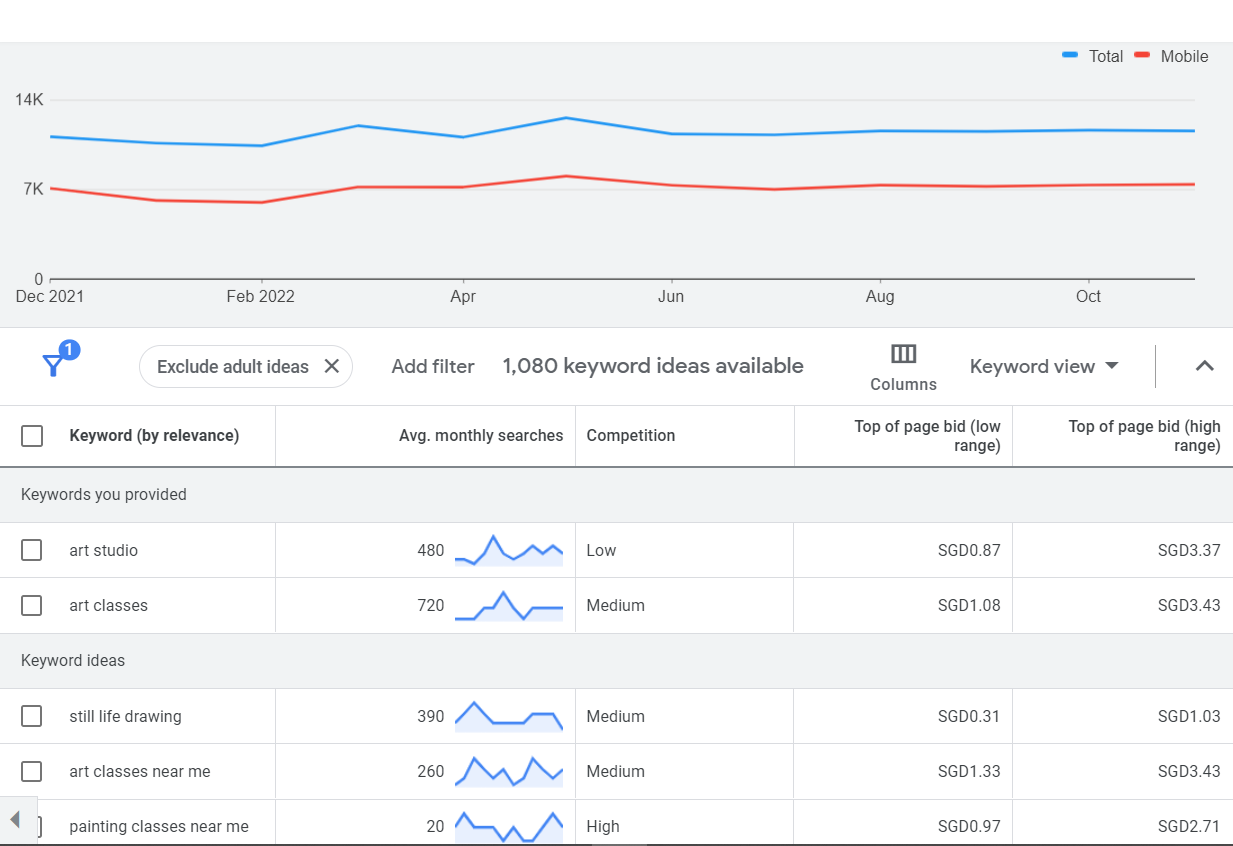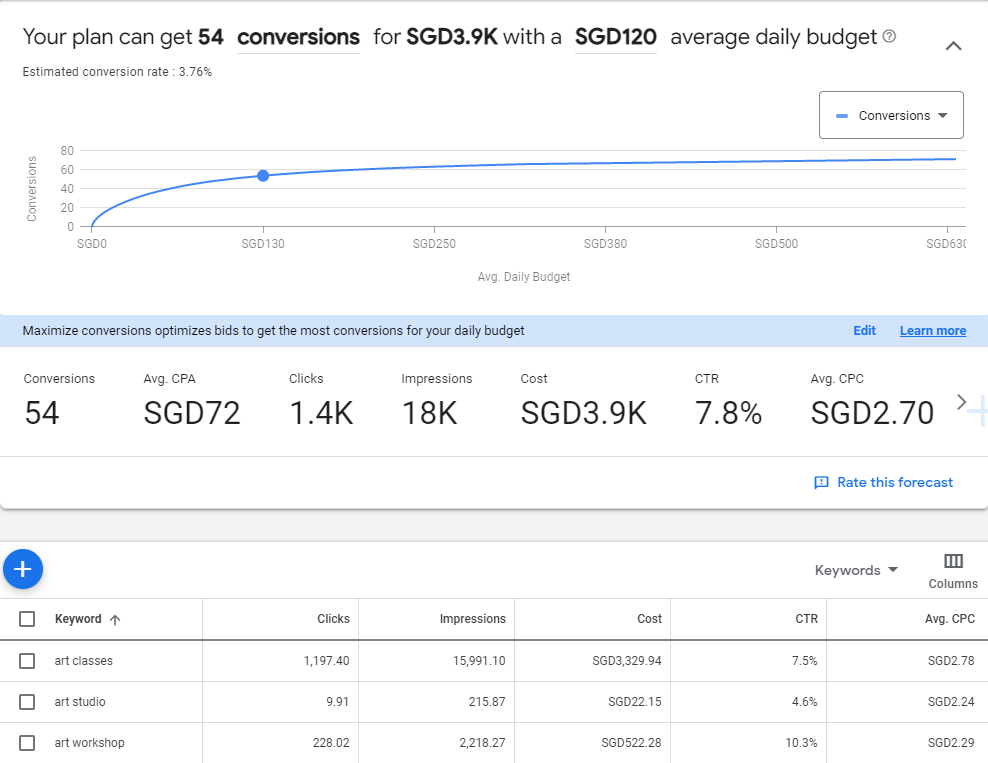In order to succeed in search marketing, it is essential
for marketers to identify and select the most relevant keywords that their customers are likely
to use when searching for their products or services. The right keywords should relate to the
product or service being offered, as well as the contents of the ad and the landing page.
Keywords need to be selected in the context of the objective of the ad. For
instance, to draw traffic, short-tail keywords may be preferred, whereas for achieving financial
goals, long-tail keywords with higher click-through rates and greater customer acquisition rates
may be more effective.
Search engines like Google provide keyword planning tools such as the Keyword
Planner in Google Ads, which generates keyword ideas and provides estimates for a range of
performance metrics, including:
- Clicks
- Impressions
- Cost
- CTR
- Average CPC
- Average Position
In addition to search engines, a variety of planning resources are available from
service providers such as Moz (moz.com) and HubSpot.
To optimize ads and advertising spend, advertisers should regularly test their ads
using analytic tools mentioned above, to assess ad performance and search ROI, tracking metrics
such as impressions, visitors, conversions, and profits.

Exhibit 27.11 Keyword Planner generates 1,080 keyword ideas.
Google Ads Keyword Planner is a useful tool for generating
keyword ideas and selecting keywords. You can access this planner through the “Tools & settings”
tab in the top menu of Google Ads.
To discover keywords, enter search terms such as products or services closely related
to your business or enter a website or a page to extract keywords from the site. As can be seen from
Exhibit 27.11, in addition to the keyword ideas, Keyword Planner provides indicative measures
for monthly searches, level of competition, and the upper and lower limits for top of page bids.
By using the Planner to carefully select the most relevant and effective keywords, you
can improve your ad targeting and increase the chances of reaching your desired audience.

Exhibit 27.12 Google Ads Keyword Planner search volume forecast.
Google Ads Keyword Planner also supports a facility to forecast
search volume and conversions. As can be seen from Exhibit 27.12, the search volume forecast
estimates the clicks, impressions, cost, CTR, average CPC and average ad position over different bids.
In the exhibit, for the selected combination of keywords, a bid of $ 1.30 (max), the plan is likely to
generate 18 thousand impressions and 1,400 clicks, which translates to CTR of 7.8%, averaging CPC of
$ 2.70 and incurring a total expense of $ 3,900 over one month (January).
To obtain conversion metrics, marketers need to provide an estimate of the conversion
rate and the value per conversion. For instance, if the conversion rate is estimated to be 3.76%, the
plan is expected to generate 54 conversions. Additionally, if the value per conversion is $ 500, the
plan would generate a value of $ 27,000 for an average CPA of $ 72.